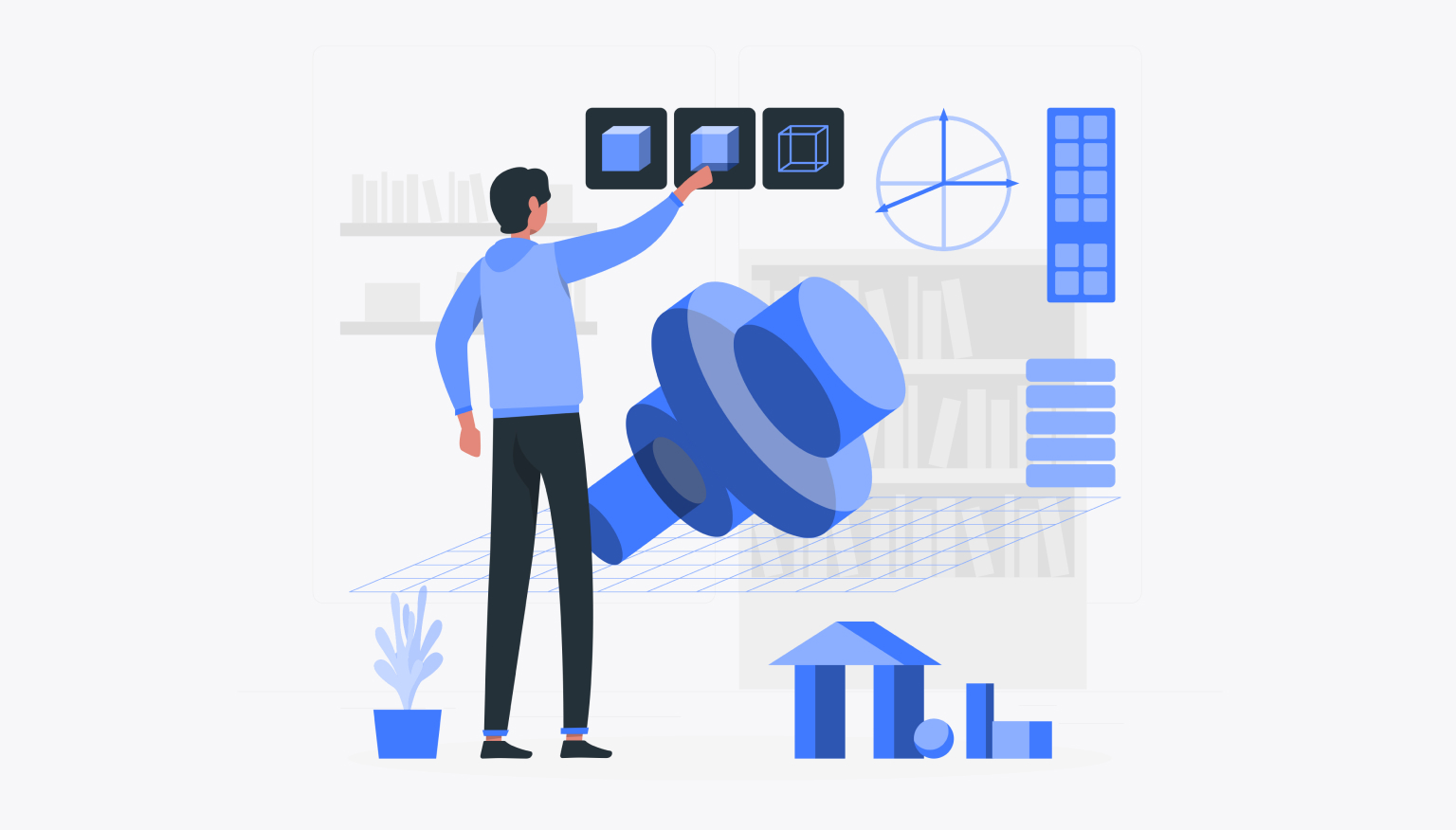Maintaining a WordPress Website - 8 Tips
What exactly does maintaining a WordPress website include? What are the guidelines you need to follow to properly maintain your site?
WordPress is a multi-component environment. We have to deal with the theme being used, perhaps several or more plugins, as well as the core itself.
They are created and updated by completely independent environments. The developers (or their teams) keep an eye on their own additions, releasing updates to the world from time to time.
You are also developing your site - adding new content, changing outdated content and deleting completely unnecessary content. Therefore, it will not be superfluous to make sure that your work does not go to waste. That's why it's useful to create backups.
There are many other similar examples. Below you will find a list of eight of them.
What is WordPress website maintenance like? - 8 Tips
1. Update core, plugins and theme regularly
Like I said, WordPress is a complex environment. It is made up of various components - mostly independent of each other, but nonetheless related.
Plugin authors don't update them for fun. This mainly happens for three reasons:
adding new features (for example, extending a plugin with additional features)
modifying current code or fixing bugs
wanting to improve security
In fact, each of these three problems is in itself is already reason enough to take care of upgrading. Also, on a regular basis.
This minimizes the risk that someone will exploit a vulnerability in your site code and do something bad with it (for example, inject unwanted, spammy content). Yes, it is impossible to protect yourself from all attacks, but you should not give anyone additional opportunities.
2. Make all changes in child theme
This is the problem that many people don't update their websites. And it's a shame.
Both themes and plugins, as well as WordPress core itself, tend to change their code "live" when they are updated, which causes the changes we have applied to be lost. They are overwritten by the latest version of the corresponding plugin released by its authors.
Therefore, you can make any changes, but it is important to do it carefully.
When it comes to changing the appearance of a page, the basis is the so-called "child theme". This is a minimal theme that inherits everything from a "parent theme" (which can be updated at will) and retains any manual changes you make.
So, as they say, you can get your cake and eat it too. You have the latest version of your theme at your disposal, and at the same time, you can do whatever you want on your site.
When it comes to plugins, the situation is about the same. You do not change the code of the plugins themselves, but interfere with their work with the help of so-called actions and filters. Using them also ensures that you don't lose the code you created when updating the plugin.
3.Check the status of your site with Screaming Frog from time to time
We at least mentioned Screaming Frog in our post about tools to help with website development.
Maintaining a WordPress site should include regular use of Screaming Frog for the following reasons:
- shows all links (both internal and external) with a 404 status
- detects URL redirects
- shows how nested pages appear in search results Google
- generates an index of external links
- checks that all images have an ALT attribute associated with them
What's more, the above features are just a drop in the ocean of what can be found in the whole program.
Although it is intended for more advanced users, even those with only a passing knowledge of SEO will be able to understand some of the information.
4. Back up your website manually
Maintaining a WordPress site goes hand in hand with backing up your site.
Actually, the vast majority of people don't care about this because it's the hosting companies that make these backups, but it's still a good idea to do it yourself.
That's because it adds another layer of protection. Yes, someone else is making a copy - but there's nothing stopping you from making one too.
Especially since you know the exact moment of creating such a copy. If something goes wrong, you will know the specific period from which you can restore the site.
5. Use reliable speed tests
First of all, we are talking about GTmetrix, Pingdom Website Speed Test and Google PageSpeed Insights tools. Each of them is important in its own way.
They can test your site from different angles and give you hints about what needs to be improved in terms of performance.
However, I have a piece of advice - don't get hung up on the results presented there. Just because a site scores 100/100 in one of these tools doesn't mean that site is actually better optimized than a site that scores, say, 85/100.
Why?
Because they are tools. They work based on the data or algorithms entered into them. The fact that the implementation of some optimization recommendation satisfies the tool does not necessarily mean that real users will appreciate the changes. The feelings of an algorithm are not the feelings of a person.
Therefore, remember that you should not always blindly believe the instructions. Of course, it is better to consider each proposal and evaluate whether it will really bring tangible benefits.
6. Disable plugins you don't use
Running a WordPress site also means tossing aside everything you don't use.
Do you have images in your media library that you know you won't use 100% anymore? Delete them.
Are there any topics that you definitely won't include? The same goes for the trash can.
Also, if you don't want to take advantage of the plugin anymore, there is absolutely no reason to keep it enabled. Deactivate it, and when you're sure you don't need it anymore, delete it.
In a word, everything is in order. This is useful both for the "visual overhead" of the site and for the WordPress database, which doesn't have to store and process unnecessary data.
7. Check the status in Google Search Console
This advice, of course, applies not only to WordPress, but to all websites in general.
Google Search Console provides site owners with extremely important information, mainly about the SEO status of the site.
It is worth checking back regularly and following the recommendations listed. However, there is one catch.
Google Search Console - especially in recent months - sometimes likes to show very strange information. Sometimes they simply contradict the facts.
Therefore, if you see disturbing content that you think is not true, it is worth looking around, for example, in Facebook groups or Google Internet forums. It is likely that users have already noticed that anomalies are observed in the tool, and not on your site.
8. Update your content
After all, something that is extremely easy thanks to WordPress.
We are talking about updating both posts and pages.
It's impossible to deny that search engine robots and Internet users themselves love news. They appreciate the fact that someone wanted to update old content with new data.
- How to give new life to old content?
- Google Rank Improvement Strategy - Refresh Old Posts
- Refresh Old Posts and Increase Blog Traffic
Above is a list of three of our posts where you will find more information on this topic.
I highly recommend that you read them at your leisure.
Is it difficult to maintain a WordPress website?
In my opinion, no. You only need to delve a little into this topic to be able to do things on your own that will allow you to perform the correct, basic maintenance of your own site.
The basis, of course, is keeping all the components that make up WordPress up to date. This should be done regularly and as quickly as possible.
There is only one exception to this rule - the situation when the developers of, for example, a plugin released an update containing some random error. Sometimes it happens that the desire to fix thing A leads to error B.
If so, then users will definitely notice it in the first days or even hours after the release of the corresponding update (most likely, on the forum dedicated to this plugin).
In general, such situations are extremely rare, but if you prefer to report it, sometimes it is better to wait a few days to update the component.
Do you have any tips that could be safely included in this text? If yes, I encourage you to add a comment in the section below.
















